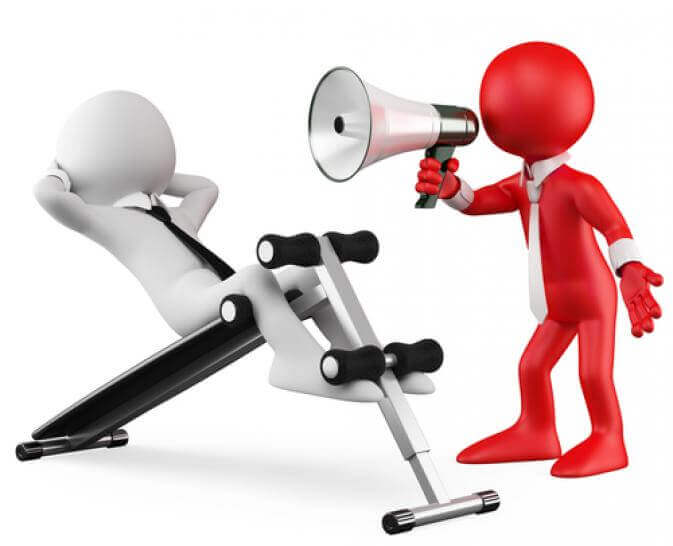Sports Nutrition Quiz: Fact or Fiction?
With the Olympics under way, elite athletes are pushing the boundaries of what’s possible. But what are they eating before their big event? Test your knowledge about which foods fuel athletic performance.
Monica Reinagel, MS, LD/N, CNS
Listen
Sports Nutrition Quiz: Fact or Fiction?
#1 True or False? It’s a good idea to eat pasta the night before a competition.
False!
Most of us have a vague notion that “carb-loading” before a race or event can help us perform better. And, actually, it is true that carbohydrate loading can be an effective way to boost performance—but eating a big plate of spaghetti the night before that 5K fun-run is not carb-loading. First of all, carb-loading only makes sense if you’ll be participating in an endurance event lasting 90 minutes or more. It doesn’t offer any performance advantage in shorter events. To do it correctly, you need to stop training for 1-3 days and start eating more carbohydrates. A lot more carbohydrates—two or three times as much as you usually would. This encourages your muscles to store the maximum amount of glycogen, which allows you to exercise longer before getting fatigued.
You can also expect to gain weight, by the way…up to 4 or 5 pounds (some of which is water) if you’re really doing it right. That’s not a problem for athletes burning up thousands of calories in high-intensity endurance sports. For the rest of us, however, carb-loading is more likely to add a pound to your waist than it is to subtract a minute from your mile.
#2 True or False? Coconut water is good source of electrolytes.
False!
For light to moderate intensity workouts, you can stay well-hydrated with plain water. When you’re exercising for longer than an hour or so, or you’re out in very hot conditions, it’s a good idea to use a sports drink that replaces fluids as well as the minerals (or “electrolytes”) that you lose when you perspire. But don’t buy into the currently popular myth that coconut water is a better, more natural way to replace electrolytes. It’s true that coconut water contains potassium and other electrolyte minerals. However, the primary electrolyte that you lose when you perspire heavily is sodium…and coconut water is low in sodium.
See also: Is Coconut Water Good for You?
#3 True or False? It’s crucial to eat a “recovery” meal immediately after you work out.
True! (sometimes)
A “recovery” meal doesn’t offer much benefit after a light workout, especially if you had a decent meal a few hours prior to exercising. But after a hard workout—especially if you’ve been strength training—you can enhance your body’s ability to repair muscle tissue and set yourself up for a good workout the next time by consuming some protein, along with some sugar, within 60 minutes of finishing your session. You don’t have to sit down to a Fred Flintstone-sized slab of steak. According to my colleague Ben Greenfield (aka Get-Fit Guy), a 300-calorie snack should do the trick. You can use a fancy sports nutrition product designed for this purpose, grab a piece of fruit and some cottage cheese, or simply treat yourself to a serving of chocolate milk, which research has found to be a highly effective recovery drink.
See also: What to Eat Before and After Exercising
#4 True or False? Athletes should avoid simple sugars.
False!
I know I spend a lot of time talking about how and why we need to limit sugar intake. But that’s because most of us spend more time sitting at our computers than we do pole-vaulting or doing the butterfly stroke. When you’re trying to keep your appetite (and waistline) in check, you want to limit fast-burning foods like sweets, fruit juice, soda, and other refined carbohydrates and seek out slow-burning fuel like whole grains, legumes, protein, fiber, and healthy fats.
See also: How to Eat Less Without Feeling Hungry
But if you’ve got a sweet tooth you just can’t tame, there is an alternative: Become an elite athlete. Regular, intense exercise not only burns a ton of calories, it also changes the way your body processes sugar. Exercise increases insulin sensitivity and that helps your cells burn sugar and carbohydrates for energy instead of storing it as body fat. Not only can athletes tolerate more sugar, they thrive on it—especially in the heat of battle. When it comes to refueling spent muscles in a hurry, you want the fastest-burning carbohydrate you can find. Those goos and gels that are supposed to power you through a long workout are essentially pure sugar. I think those little red Swedish fish I love so much would probably work just as well.
#5 True or False? Eating more protein will give you bigger muscles.
It depends.

See also: How to Build Muscle
Thanks for taking my Olympics-inspired Sports Nutrition Quiz! Enjoy the rest of the games—and may the discipline and dedication of these talented athletes inspire us all to new and greater challenges!
(Swedish fish marathon, anyone?)

